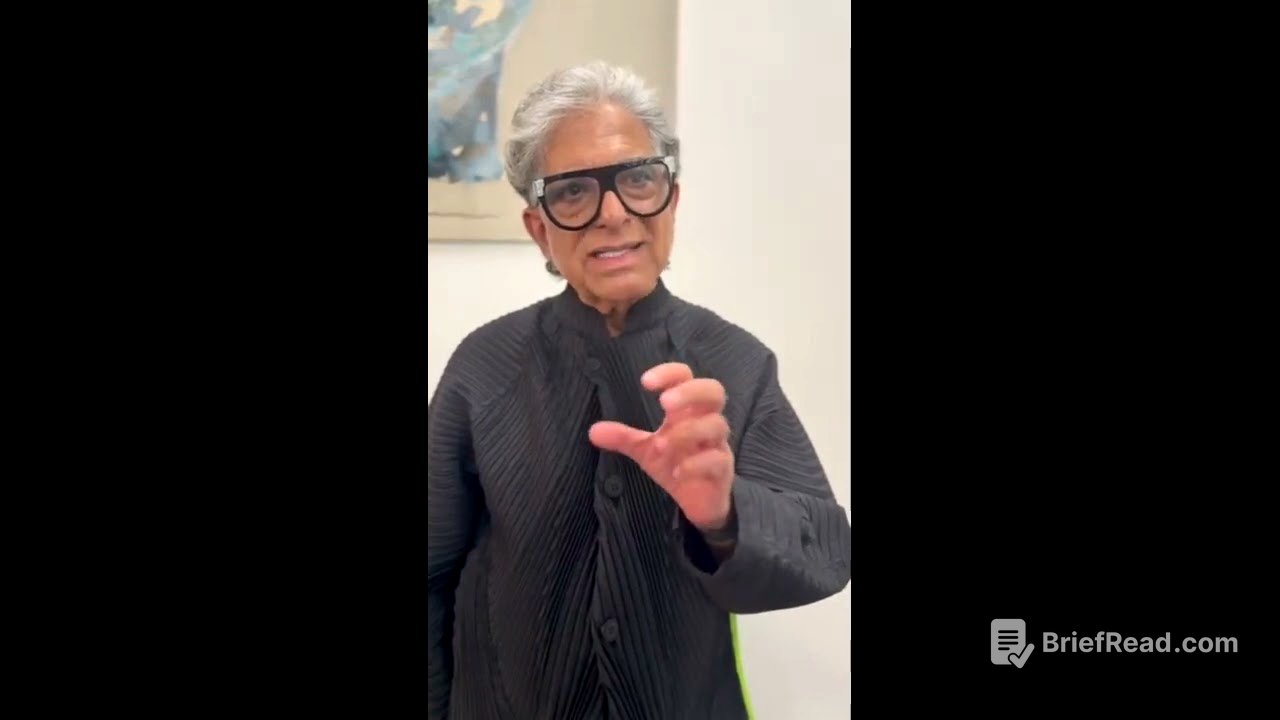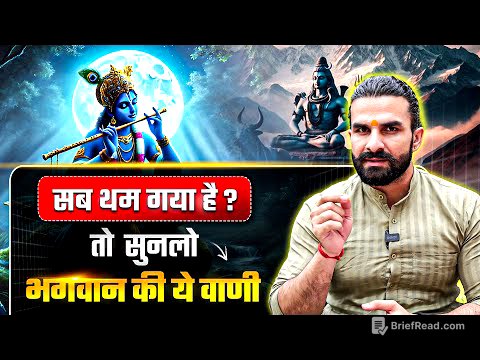TLDR;
Karma, often simplified, is actually about how past experiences shape our future desires and perceptions. It's the foundation of our personality, mind, body, and even the universe. Understanding karma gives us the power to create our own experiences and go beyond limitations.
- Karma is past experiences influencing future desires.
- Sanskara is the residue of past experiences.
- Vāsanā is the desire for future experiences.
- Karma is essential for memory, imagination, and the ego.
- Understanding karma leads to freedom and transcendence.
Understanding Karma [0:00]
Karma is more than just a buzzword; it's about past experiences, memories, and interpretations shaping our imagination of the future. In Sanskrit, the residue of these past experiences is called "sanskara," which then leads to "Vāsanā," the desire for future experiences and imagination. This whole process is the seed of a personality.
Karma and Personality [0:48]
Even at birth, a baby has the seeds of personality due to past karma, with its sanskara, Vāsanās, memories, interpretations, and imagination. This creates the conditioned mind through which we perceive the world and our own body. Like, a mother can tell the difference in personalities of identical twins.
The Deeper Mystery of Karma [1:27]
Without karma, there would be no experience of memory, imagination, the conditioned ego mind, the physical body, or even the universe. It's important to not think bad about having an ego, a body, a mind, and the experience of the world. This is how pure consciousness modifies itself into the conditioned mind through which we perceive everything.
Freedom and Transcendence [2:02]
Going deep into the mystery of karma gives you freedom, which means you can create your own karma and ultimately transcend it. Understanding this allows you to take control of your experiences and move beyond limitations.








